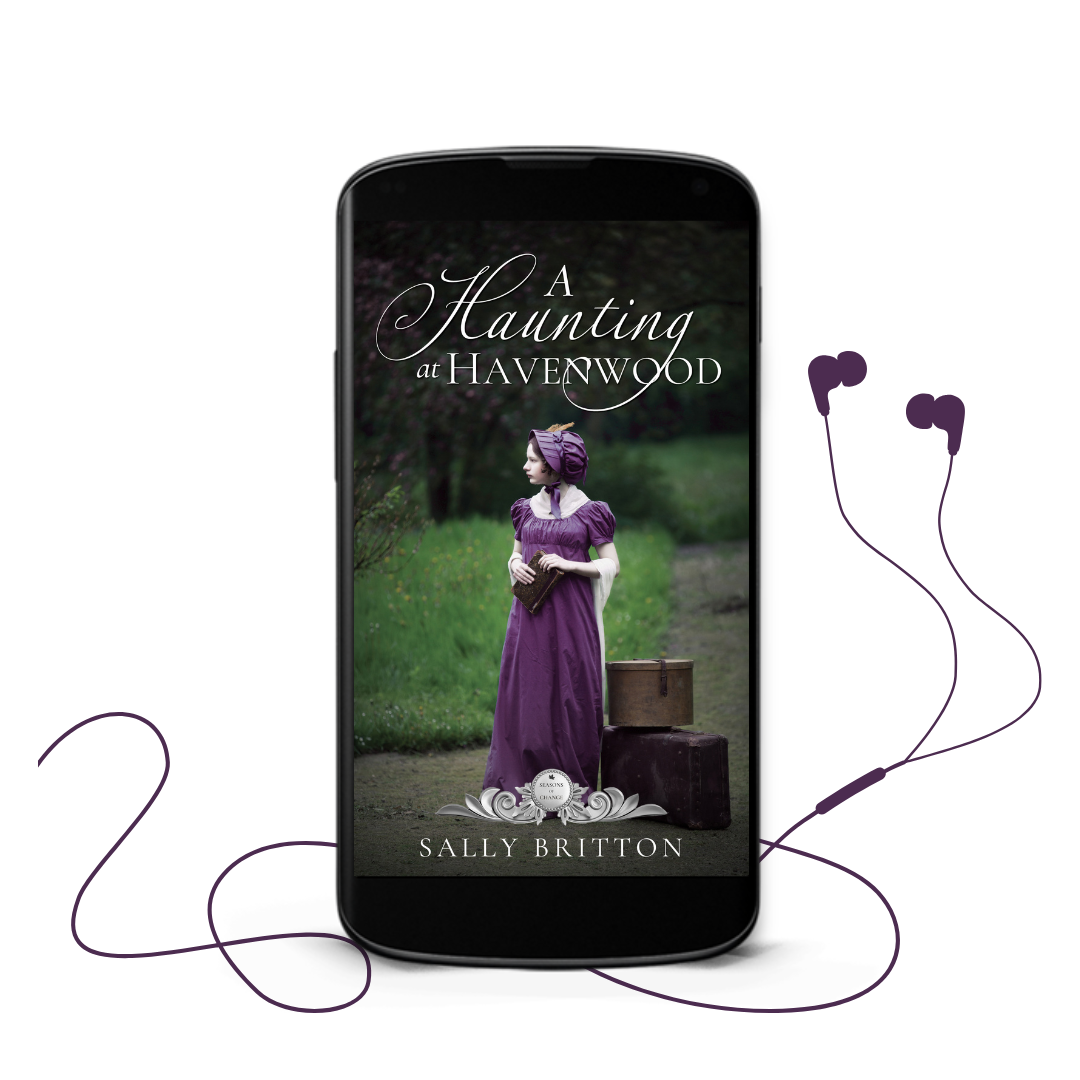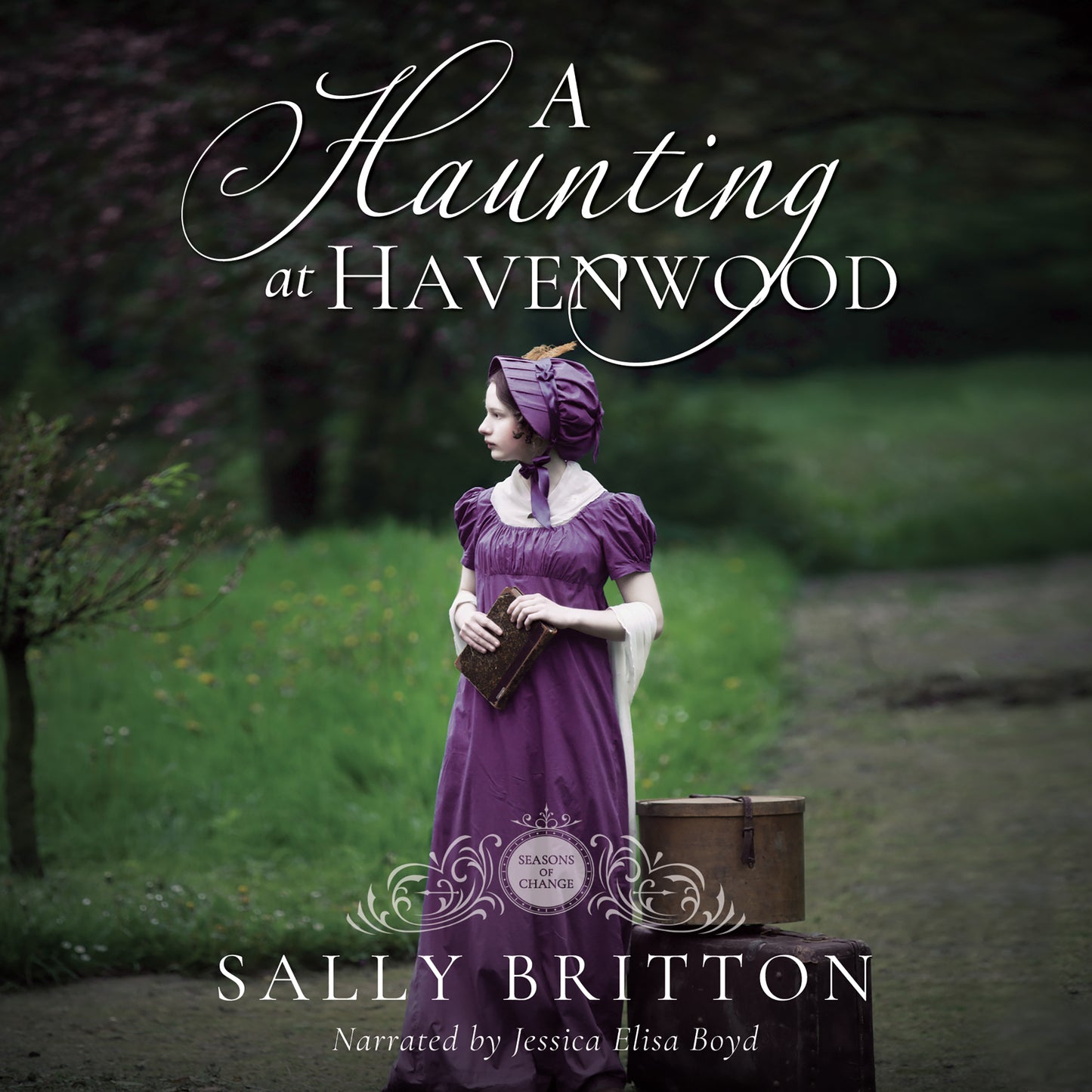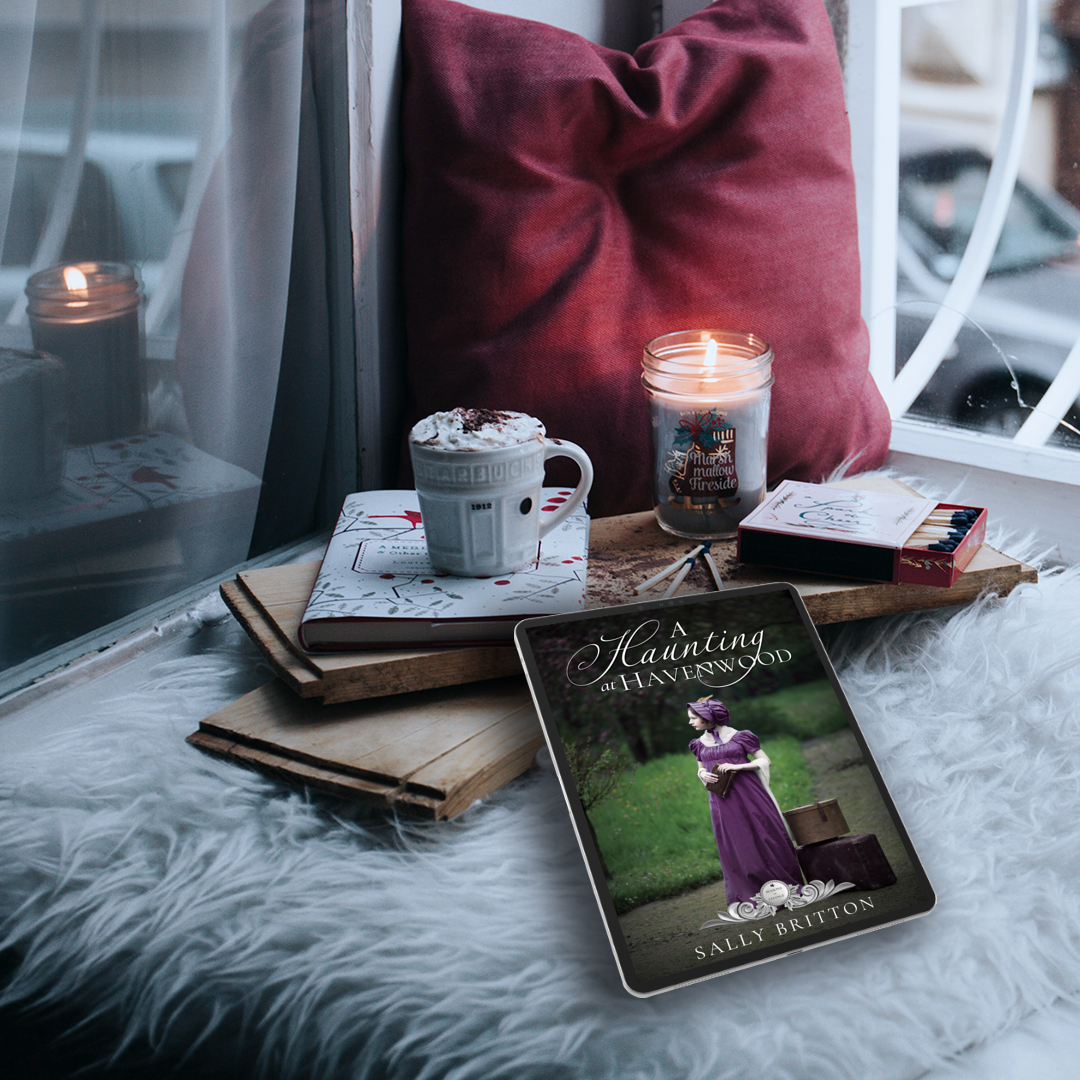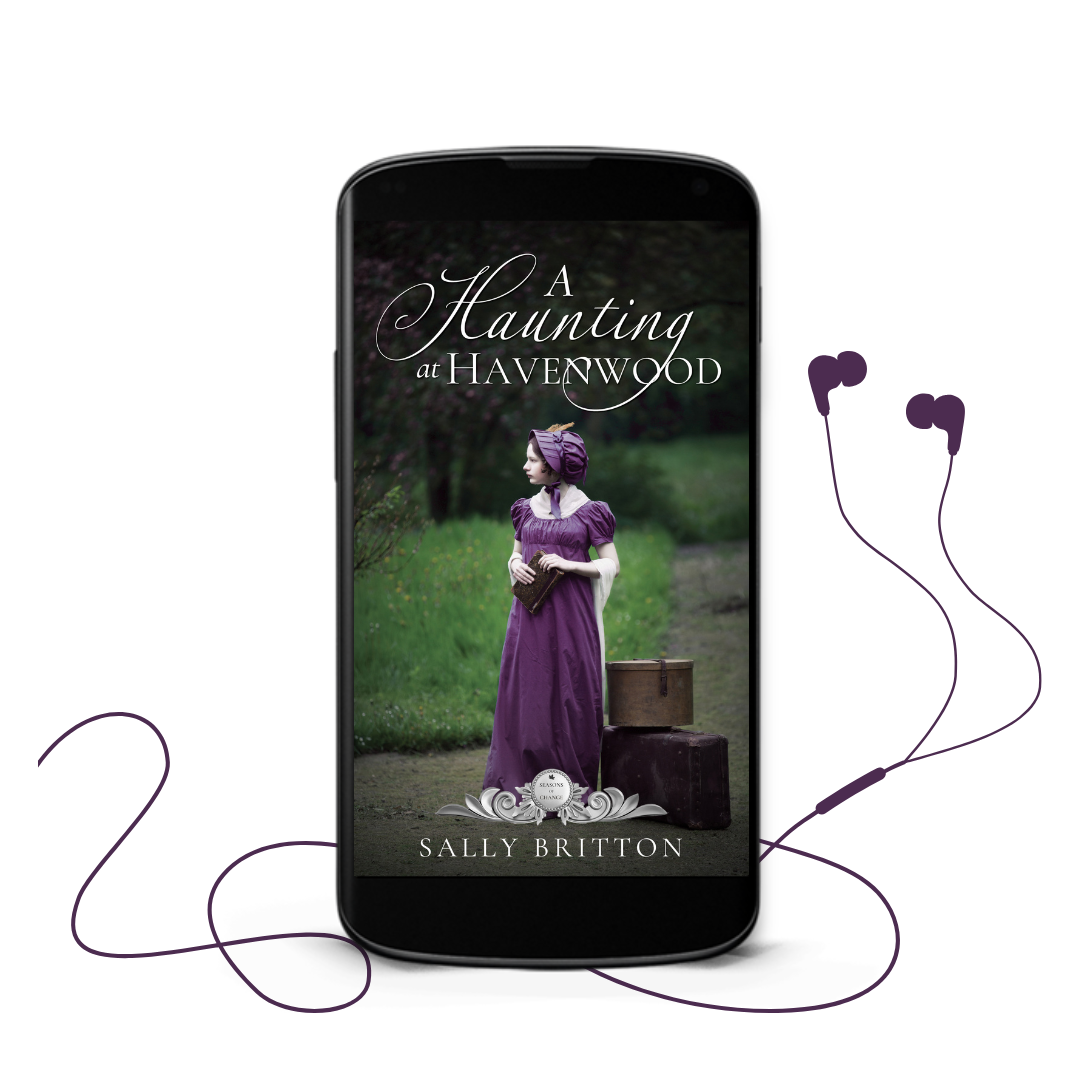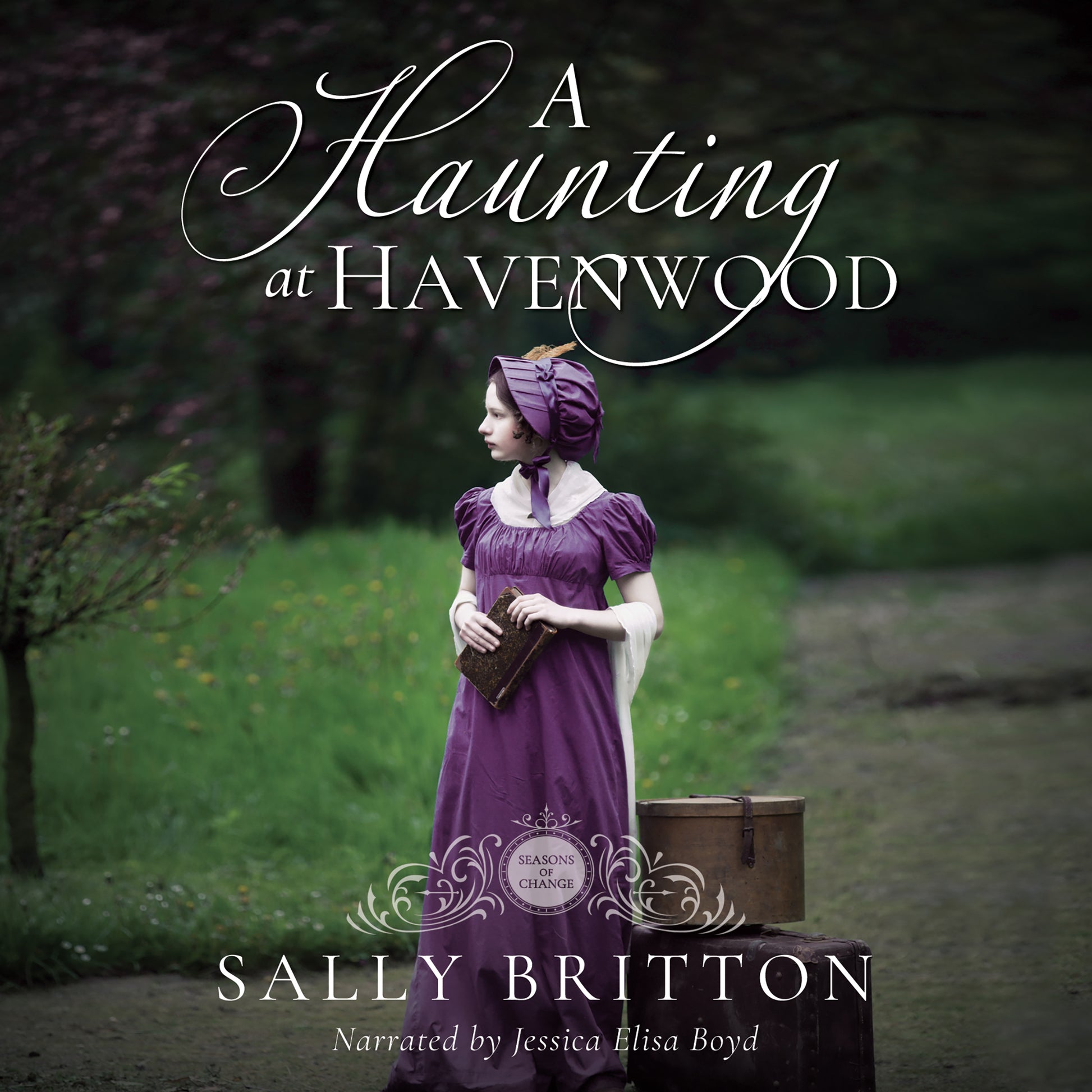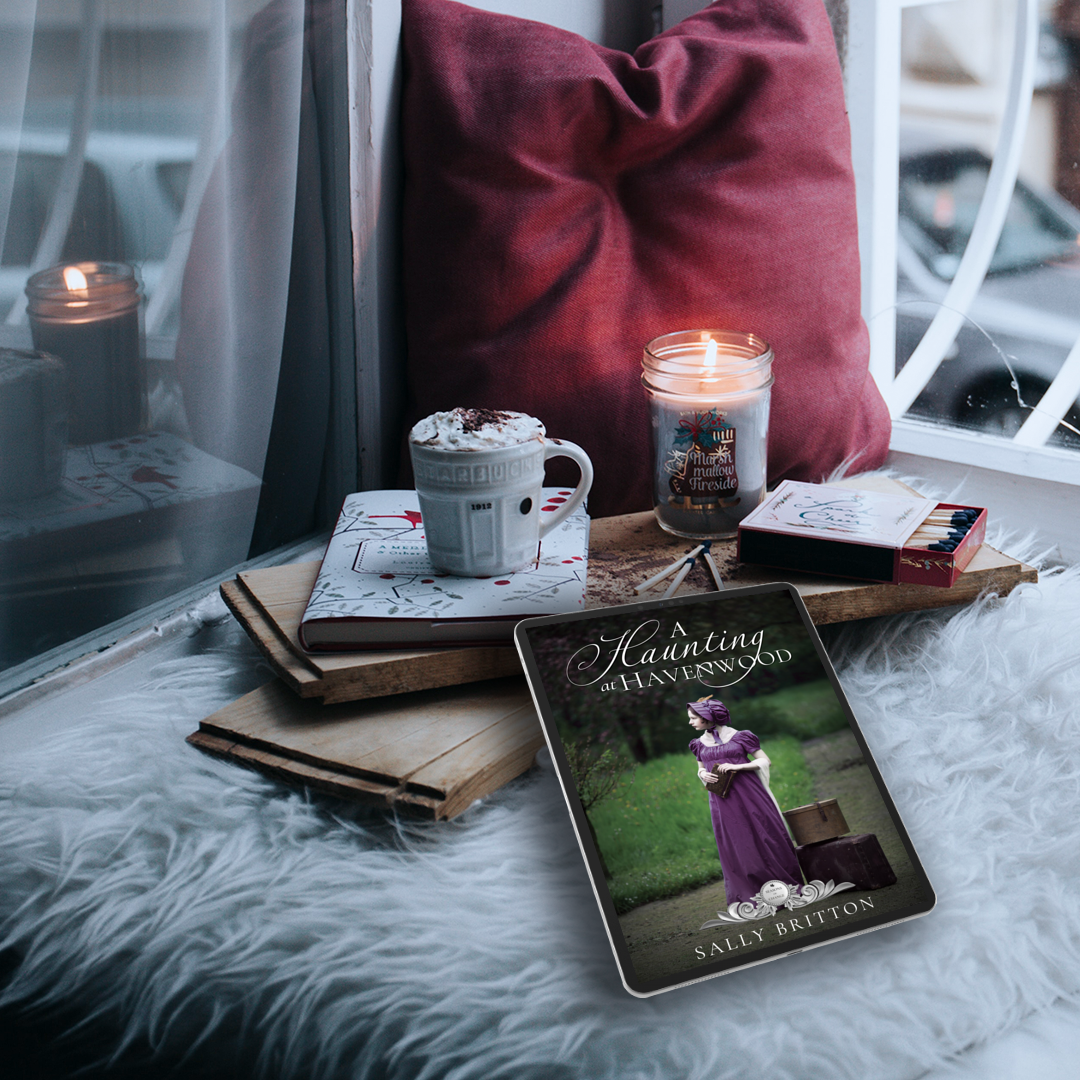A Haunting at Havenwood (Audiobook)
A Haunting at Havenwood (Audiobook)
Narrated by Jessica Elisa Boyd
Couldn't load pickup availability
- Purchase the Audiobook Instantly
- Receive Download Link via Email
- Stream on BookFunnel or Download MP3 Audiofiles and Enjoy!
Louisa Banner reluctantly agrees to spend October with an elderly aunt in an attempt to win family favor. While exploring the woods nearby, she encounters a man named Erasmus Grey in a secluded family cemetery. Erasmus isn't a ghost, but his many-times great-grandparents are, and they're bothering him to no end about finding a lost family treasure. He's come to Havenwood seeking solace in seclusion. But when Louisa mistakes him for a ghost, he wonders if their meeting could help him. Together, they embark on a journey to confront their fears and discover the power of love and acceptance.
Though this is the sixth book in the Multi-Author Seasons of Change series, A Haunting at Havenwood is a stand-alone novel.
There are also no scary ghosts, frightful scenes, or anything remotely related to the horror genre. This is a sweet romance.
Main Tropes
- Mistaken Identity
- Adventure/Treasure Hunt
- Friendly Ghosts
- Hero with Speech Impediment
- City Girl in the Country
- Stand-Alone Novel
Synopsis
Synopsis
When Louisa Banner's mother announces they are poor, she cannot help her misgivings when her mother sends her away to live with her great aunt in a tiny, Northumberland village. Louisa's aunt also happens to live near the ruins of an ancient castle. Although Louisa insists she is not the least bit superstitious, tales of lost treasure and ghosts intrigue her.
When Louisa stumbles upon a forgotten graveyard, and a man whose name comes directly from a tombstone, she isn’t certain whether to run away in terror or stay and get to know the handsome spirit.
Erasmus Grey is cursed, and not only because he sometimes hears the voices of ghosts claiming to be his dead grandparents. While most men would count it a blessing to be a wealthy, eligible bachelor, Ras has no hope of finding a bride who will tolerate his stammer or his passion for writing Gothic novels.
Rather than succumb to the matchmaking mothers of London, he retreats to an old family estate at the behest of the ghostly voices. Though he manages to keep his presence in the country a secret, coming upon a lovely young woman during one of his rambles nearly undoes all his careful work. But when he realizes Miss Banner thinks him a ghost, Ras wonders if he might have found someone who truly understands him.
Treasures, castles, and ghosts combine in an autumn romance in a haunted wood.
Intro to Chapter One
Intro to Chapter One
“It is no use crying, Louisa. You will only ruin your complexion.” Mrs. Banner’s words, delivered with a frosty glare, made her daughter gulp air in an attempt to calm herself.
Louisa had buried her face in the sofa’s arm in her mother’s room, her salty tears soaking the fabric. Her head had begun to ache, too. She lifted her gaze to look at her mother; the woman sat stiff in her chair, the black velvet gown she wore making her appear more like a shadow than a creature of warmth. She wore a stiff white cap over her chestnut hair, the curls artfully peeping out the same color as Louisa’s.
Her mother was still a handsome woman, despite being twice her daughter’s age.
“Mother, I did not know.” Louisa’s lungs constricted as she spoke. “What will become of us?”
“How dramatic you are.” Mrs. Banner reached calmly for her teacup. “You must have known for some time that our funds were dwindling, yet I never saw you hesitate to purchase a new frippery.”
Nor had her mother stopped her. Or warned against unnecessary expenses, but Louisa did not say so out loud. How had she not realized their finances were so close to ruin? True, some of their belongings had disappeared off walls and the best set of silver had been sent away. But Mrs. Banner had said they were merely out-of-date and wanted replacing.
It had been Mrs. Banner who had insisted Louisa obtain a new gown for the assembly ball a month ago, and wear fresh gloves and slippers, and paid for fresh flowers to adorn Louisa’s hair. All for what? They lived in Scarborough, not London. There was a dearth of men looking for wives, considering the social season was well underway in the largest city in England, drawing the most eligible bachelors there instead.
Yet Mrs. Banner had been disappointed, and she had spoken to Louisa with more harshness than usual when no callers came after the ball.
Louisa’s tears had stopped while her mind churned through the past several months of expenditures and missing household items. There had also been a lack of visitors over the past fortnight. Her mother’s cronies had not, as per usual, come to spend a quarter of an hour gossiping. Louisa had not missed them. Her mother’s friends were spiteful cats or else simpering biddies only looking for Mrs. Banner’s approval.
Louisa grasped at the past, reaching back to memories of her father. He had always treated her fondly, if indulgently, until his passing three years before. “I thought Papa left us a fortune.”
“He left us a pittance. Most of his money was tied to that trading company.” Mrs. Banner put her cup and saucer upon the table at her elbow, then folded her hands in her lap. “His partner ruined the business a year ago. I had hoped to find you a husband with money enough he could enjoy your beauty without wanting a fortune with it. It seems I overestimated the value of your looks.”
The verbal slap cracked upon Louisa’s heart and her pride. She might not have been a diamond of the first waters, as her mother had been at the same age, but she knew herself to be pleasant-enough to look at. There were gentlemen who had said as much, admiring her lively brown eyes or rose-pink cheeks. Surely gentlemen did not say such things unless they meant them.
“Mother.” Louisa pulled her legs beneath her on the couch and wrapped her arms around one of the embroidered cushions, seeking comfort by holding on to whatever she could. She had long since given up hoping for an embrace of any kind from her remaining parent. “If we are to lose the townhouse, where will we go?”
News of the need to sell the house had been Mrs. Banner’s start to the whole conversation regarding their downfall. Their worldly belongings were to be packed up and sold in lots; the furniture would stay with the house, and the money for it all would go to debts, according to Mrs. Banner. What debts they two could have that would necessitate selling the entirety of their possessions Louisa could not fathom. They did not live expensively, did they? And they only had a few servants.
“I intend to go to Mrs. Shirley. We have been friends since our youth, and she has been lonely since widowhood.”
Mrs. Shirley had a sharp tongue and a fondness for fat little dogs. Louisa hugged the cushion tighter as she admitted the thing she knew best about Mrs. Shirley. “Your friend does not like me. Not since I was a child.”
“No. Her invitation to stay did not extend to you.” Mrs. Banner sighed, for the first time showing a sign of something other than irritation. But Louisa knew well enough whatever emotion her mother felt had more to do with the inconvenience of having a daughter than with her friend not much liking that daughter. “I have made other arrangements. You are to go to Northumberland.”
Louisa’s fingertips went numb with cold, and her heart shriveled within her breast. “Northumberland?” she whispered. Scarborough was a place of little consequence, but near enough Manchester that they had made the journey to the larger town many times in Louisa’s lifetime. They had always traveled southward, and Louisa dreamed of going to London.
But going northward?
“Your father’s aunt lives in Harbottle, a village south of the border. Not by much, from what I remember.” Mrs. Banner flicked her fingers dismissively. “I will send you with the mail coach and a maid. Perhaps, while you are there, you might endear yourself to her. She has no children, and her husband left all he owned to her.”
Louisa tucked herself deeper into the corner of the sofa; with her throat so hot and closed, she barely managed a whisper. “I do not even know her. Why does she—does she want me?” Louisa hated herself for sounding small.
If Louisa’s own mother did not want her daughter about, why would an aunt Louisa had never heard of until that day?
“I wrote to her.” Mrs. Banner averted her gaze to her lap, where she smoothed an imaginary wrinkle. “Weeks ago. Her reply arrived this morning. I offered your services to her as a companion, and Mrs. Penrith agreed to let you come. The woman is over sixty years old, and Harbottle is not likely to provide much in the way of companionship to her.”
“Harbottle.” Louisa said the word with confusion.
“The village where your great-aunt lives.” Mrs. Banner stood with her usual grace, but Louisa remained still upon the couch. She should not have felt so cold with a fire burning in the hearth and a shawl around her shoulders. Yet she could not help but shiver when her mother looked down upon her.
“When will I go?” Louisa asked. It did not occur to her to argue. Her mother had that look about her—the one that made Louisa think her mother formidable enough to face down a lion if she chose. Louisa never argued with Mother.
“Tomorrow. You have little to pack and less to manage.”
Louisa had always suspected she rather disappointed her mother with how she’d turned out. But as Louisa did her best in her studies, minded her manners, and always obeyed without question, it was difficult to understand why her mother never precisely approved of her only child.
Louisa began to comment, but Mrs. Banner continued speaking, denying her the opportunity. “It is a lengthy journey, and it will take you several days. I have gone to some expense to secure you a seat inside the coach. Make the most of your time in Harbottle, child. I will check your trunk before dinner.” Without another word, her mother left the room, the black of her gown fading from Louisa’s sight.
If Mother had already arranged everything… How long had she known she would send her only child away?
Louisa waited, counting the seconds as they passed, then rose and fled the sitting room for her father’s study. The room was unused, and the maid had stopped dusting it, too. But when Louisa slipped inside, closing the door quietly behind her, she was transported back in time. Back to when her papa sat at the desk, smiling at her over his spectacles.
She went to the windows and opened the curtains, pulling them back to allow the sunlight to stream inside.
Most of her father’s books were gone. Now, Louisa knew why. Her mother likely had taken to selling them.
She approached the shelves slowly, her eyes searching for a long book bound in red leather. Hoping it was still there. When she found it, laying on its side beneath a stack of folded papers and rolled maps, she exhaled slowly. Her father’s treasured copy of the Counties of England remained. With deft fingers, Louisa slid the book from its place. It was a slim volume, for all that it was tall, and she knew it well. Before her father’s death, they had examined the different counties and towns together.
“Here is Dover,” her father had said. “The place closest to France, and Calais. And here is Cambridge, where I studied in my youth.” Kent and Cambridgeshire were not what she was after at the moment. She turned the pages of the illustrated maps until she found Northumberland.
Harbottle was in the north, her mother had said.
The lettering was small, and Harbottle must not be a large village, for she did not immediately find it. After a few moments of looking, Louisa opened the top drawer of her father’s desk and found his old magnifying glass. The glass was slightly yellow with age, its wooden handle well-worn and starting to split at the base. She held the glass over the map, tracing the northern border of England with her eyes.
There was Alnwick, the county seat, on the eastern coast. And Newcastle at the southern border. Her eyes skimmed over names that made her hopes sink. They all sounded dismal. Low Bleakhope, Deadwater, Falstone, and finally, just beside the River Coquet, she found it on the western border.
The name on the map, small and insignificant, told her nothing about the place she must go. But there it was. It was real. Harbottle existed, and so too must the great-aunt she had never heard mentioned before that afternoon. What had her mother called her? Mrs. Penrith.
Louisa collapsed in her father’s old chair, the scent of leather and dust mixing together to make her eyes water and nose itch.
“Oh, Papa,” she whispered, eyes upon the map. “What will become of me?”
The room remained silent, and the shadows grew longer.
